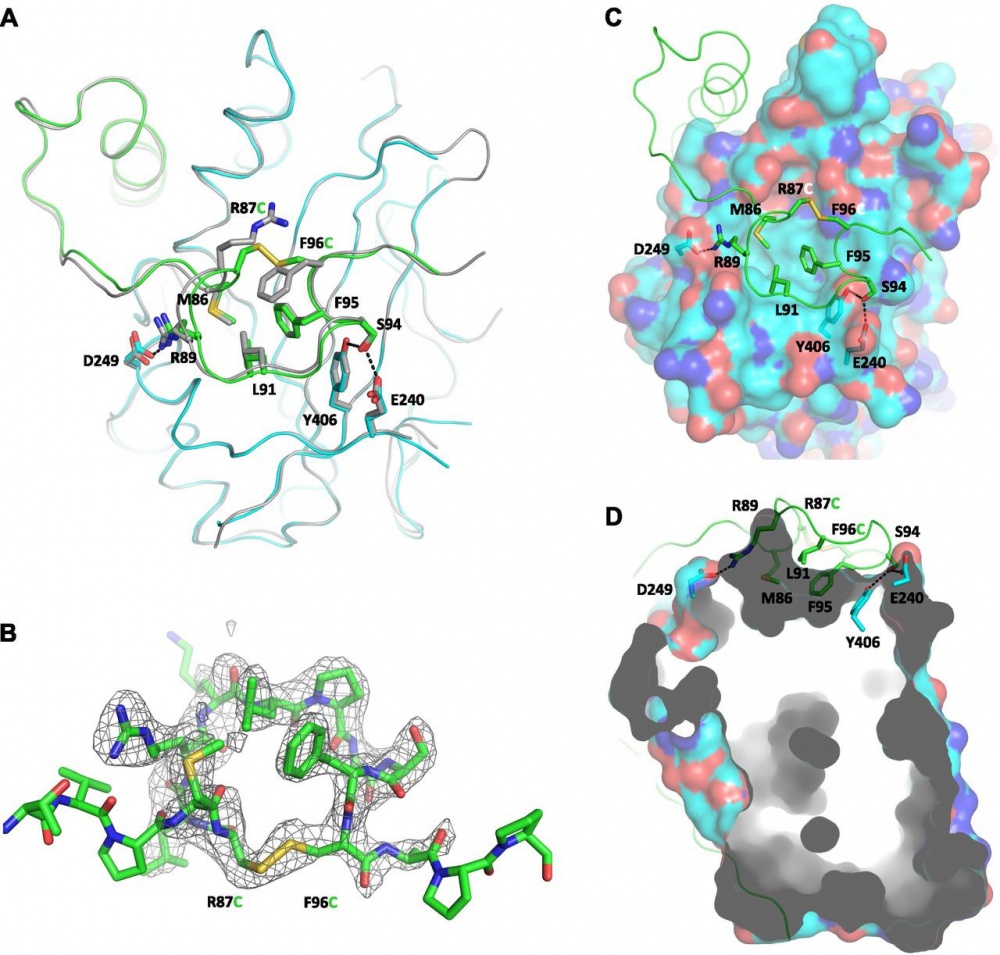Targeting Hippo Pathway by Specific Interruption of YAP-TEAD Interaction Using Cyclic YAP-like Peptides
01-02-2015
Hippo signaling pathway is emerging as a novel target for anticancer therapy because it plays key roles in organ size control and tumorigenesis. As the downstream effectors, Yes-associated protein (YAP)-transcriptional enhancer activation domain family member (TEAD) association is essential for YAP-driven oncogenic activity, while TEAD is largely dispensable for normal tissue growth. We present the design of YAP-like peptides (17mer) to occupy the interface 3 on TEAD. Introducing cysteines at YAP sites 87 and 96 can induce disulfide formation, as confirmed by crystallography. The engineered peptide significantly improves the potency in disrupting YAP-TEAD interaction in vitro. To confirm that blocking YAP-TEAD complex formation by directly targeting on TEAD is a valid approach, we report a significant reduction in tumor growth rate in a hepatocellular carcinoma xenograft model after introducing the dominant-negative mutation (Y406H) of TEAD1 to abolish YAP-TEAD interaction. Our results suggest that targeting TEAD is a promising strategy against YAP-induced oncogenesis.
Keywords: HCC xenograft; TEAD-YAP crystal structure; disulfide cyclization.
Location: Seattle | Hong Kong | Guangzhou | Sydney | Singapore
Copyright©2023 Arbele All Rights Reserved.

